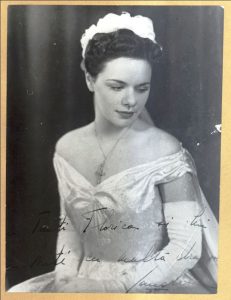Dictionary of Romanian Quotations – Letter “N”
Naiveté:
“Now, I am a person who likes simple words. It is true, I had realized before this journey that there was much evil and injustice in the world that I had now left, but I had believed I could shake the foundations if I called things by their proper name. I knew such an enterprise meant returning to absolute naiveté. This naiveté I considered as a primal vision purified of the slag of centuries of whorey lies about the world.”
(Paul Celan (1920-1970), Poet, Exile)
( “Edgard Jene and The Dream About The Dream”)
(“Collected Prose”, Cancarnet, 1986)
Nandris, Mabel (née Farrell): Altruism:“All that I did for Romania I did for free,
without any personal gain.” (‘pe degeaba’ – t.n.)
(Mabel Farrell Nandris: Personal Communication to the Author, Cambridge 1980)
Nandris – Cudla, Anita: A woman’s gulag:
“So much misery and suffering I had never had before as I have had now. Can anyone imagine how – in a winter with 40 degrees below zero – could a woman have made a journey of 80 kilometres on a reindeer sledge through pathless snow-drifts, through forests, through wilderness? In the night I could see nothing but the whiteness of the snow. I hung on with great fear and attention to the “narta” for it was small and if they had tripped suddenly, I could easily have been thrown out to be abandoned in a snow-drift where I would have never been found.”
(Anita Nandris-Cudla (1904- 1986), “Twenty years in Siberia”)
Nation:
“When a nation has no principle left in its blood,
the only resource is the will to disintegrate.”
(Emil Cioran (1911-1995), philosopher, exile) (“Précis de décomposition”)
Nation:
“A Nation is not vanquished when foreign forces reduce it to pulp. A Nation is vanquished only when it gives up reaffirming its dignity, when it considers itself vanquished within its inner self.”
(Viorel Gheorghita, Farmer, Anti-Communist Resistance leader)
(Note on Ion Gavrila Ogoranu’s Memoirs: “Fir trees break up, they never bend”)
(1923 – 2006)
Nationality:
“I have no nationality – the best possible status for an intellectual.”
(Emil Cioran (1911-1995), philosopher, writer, exile)
Nationality:
“I was born in 1929 in Transylvania (România). One good morning, when I was 11 years old I woke up to be a Hungarian citizen, without having moved to another place, another street, or even without having changed my shirt. At the age of 14 I was deported to Auschwitz, as a Jew. On my release in 1945 I had become again a Romanian citizen. That is why I have the greatest difficulty in establishing my nationality, other than from my identity papers which specified that I was Jewish.”
(Ana Novac (1929-2010) “The Beautiful Days of My Youth:
My Six Months in Auschwitz and Plaszow”)
 Negoità, Lucia Carmen: Rhinoceros:
Negoità, Lucia Carmen: Rhinoceros:
“In the Orwellian world of communist dictatorship the mechanisms of censorship had reached a devilish threshold of perfection, especially during the last decade. Aggressive, obvious or hidden, these devices were a sure way towards the alienation of the individual. As in Eugène Ionesco’s famous play, we were all in danger of becoming rhinoceros.
The whole system, well planned in its structure, condemned a whole people to a slow but sure death of the soul. The kulturniks of the age, those who, higher or lower in ranks, carried out the instructions received from the Party, from Ceausescu himself, had an inexhaustible imagination in heightening suspicion, fear and terror. The comic and the absurd mingled with the tragic. The individual himself was doomed to being a mere number, in a monotonous mortifying series.”
(Lucia Negoità, b. 1945, Breaza, quoted by Vianu, Lidia, in:
“Censorship in Romania”, pp. 159-161)
Negroponte, Sanda, née Tàtàrescu (1919-2009) – about her mother Aretia Tàtàrescu:
“ Who suffered terribly in all this was my mother: her husband and daughter were arrested and her son was in a mental hospital in Paris. I must add that mother, who lived always in the shadow of my father, was never involved in politics, not even for a single day. Furthermore, as an anecdotal aside, she never ever voted in elections: she deemed it unethical to vote for one’s own husband. So this is how it fell upon her to look after her family.
She was a woman of an extraordinary perception for what is beautiful. After the First War she settled in Oltenia, in the native village of my father’s, at Poiana-Gorj and there she was able to mix the beautiful with social duties. She realized that County Gorj was a very poor region, with many orphans and so she founded a charity with the aim of reviving the tradition of the carpet weaving of Oltenian style.
Mother was faced with a stark choice: either that of leading a mundane life, as the wife of a Prime Minister, or a life dedicated to things she felt it her duty to carry out. She was a lady of means and, as such, she felt it was her social duty to assist the poor girls of County Gorj, for whom she founded a textile mill producing Oltenian-style rugs, with modern patterns. For it she received various prizes abroad. In 1937 one of her rugs received a medal in Paris. This was her vocation. She was an extraordinary woman as a mother and wife and I should add, an extraordinary woman for her country as well: Brâncusi’s coming to Romania was entirely due to my mother” (t.n. to create the monumental triptych ensemble of the ‘Column of Infinity’, the ‘Gate of the Kiss’ and the ‘Table of Silence’ ).
(Sanda Tàtàrescu-Negroponte (1919-2009),
Daughter of Romanian P.M. Gheorghe Tàtàrescu,
Interviewed by Marian Oprea, “Lumea Magazin”, nr. 7, 2002)
Sanda Tàtàrescu-Negroponte, (1919-2009) –
From Buckingham Palace to the Communist Prisons:
“Until 1950 I lived times of great happiness, to the point of irresponsibility. In the meantime I was married and had children and I was leading a happy life, I should say somewhat superficial, if one is to describe it more accurately; but how beautiful it was! That was until the moment when the terrible (political) persecutions started… of course members of the Tàtàrescu family were amongst its victims: in all eleven people three women – two aunts and myself, who committed no crime and all the brothers and brother-in-laws of my father’s.
It is true, that when I arrived at the prison sorting centre, at Ghencea, I was made to scrub the floors, something I had never done in my life, which prompted my self-analysis: ‘what was the point to have been presented to the King of England, when I could not even scrub the floors?’ But, at the same time, I said to myself: ‘I am deeply grateful to my father, who gave me the chance of being what I was, once upon a time, even though, now, I had to pay so dearly for it.’ But God helped to see me through all these prisons, with their terrible hardships and deprivations – so that at the end of my life, as I am now 82 years-old, I can state that I always looked people in the eye, that I protected my family and children and that I kept with dignity the name which I inherited from my parents.
(Sanda Tàtàrescu-Negroponte,
Daughter of Romanian PM Gheorghe Tàtàrescu,
interviewed by Marian Oprea, Lumea Magazin, nr. 7, 2002)












No Comments so far ↓
Like gas stations in rural Texas after 10 pm, comments are closed.